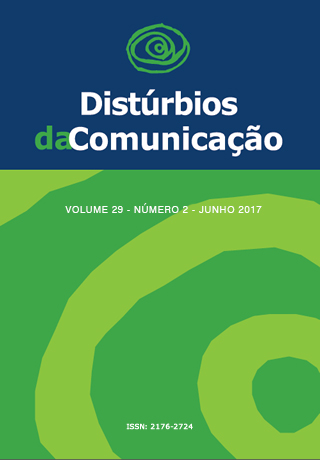Desenvolvimento da linguagem na síndrome de Down: análise da literatura
DOI:
https://doi.org/10.23925/2176-2724.2017v29i2p354-364Palavras-chave:
Fonoaudiologia, Linguagem, Desenvolvimento da Linguagem, Síndrome de DownResumo
A síndrome de Down é uma condição genética resultante da presença extra de um cromossomo 21, que pode gerar diversos problemas de saúde durante o desenvolvimento do sujeito. Uma dessas alterações é o atraso no desenvolvimento da linguagem e cognição da criança, que apresenta um déficit maior na linguagem expressiva do que na compreensiva. Por isso, a intervenção fonoaudiológica precoce é essencial para a promoção de uma melhor habilidade comunicativa do sujeito com a síndrome. Nesse sentido, este estudo objetivou analisar as produções científicas nacionais acerca do desenvolvimento da linguagem e comunicação na síndrome de Down e intervenções precoces nessa população. Para isso, foi realizada uma busca em bases de dados de artigos, teses e dissertações, utilizando a combinação dos descritores “linguagem”, “síndrome de Down” e “desenvolvimento da linguagem”. Foram obtidas 106 publicações que tiveram seus títulos e resumos analisados. Após essa análise inicial, foi identificado que 20 estudos contemplavam a temática pesquisada, estes foram analisados integralmente. Constatou-se que é consensual a presença de um déficit no desenvolvimento da linguagem, quando comparado com o processo de crianças com desenvolvimento típico; que há um maior uso das produções gestuais nessa população e isso pode favorecer a aquisição lexical; e que a intervenção fonoaudiológica é eficaz no desenvolvimento da linguagem na síndrome de Down.
Downloads
Downloads
Publicado
Edição
Seção
Licença
Copyright (c) 2017 Ivonaldo Leidson Barbosa Lima, Isabelle Cahino Delgado, Marianne Carvalho Bezerra Cavalcante

Este trabalho está licenciado sob uma licença Creative Commons Attribution 4.0 International License.









